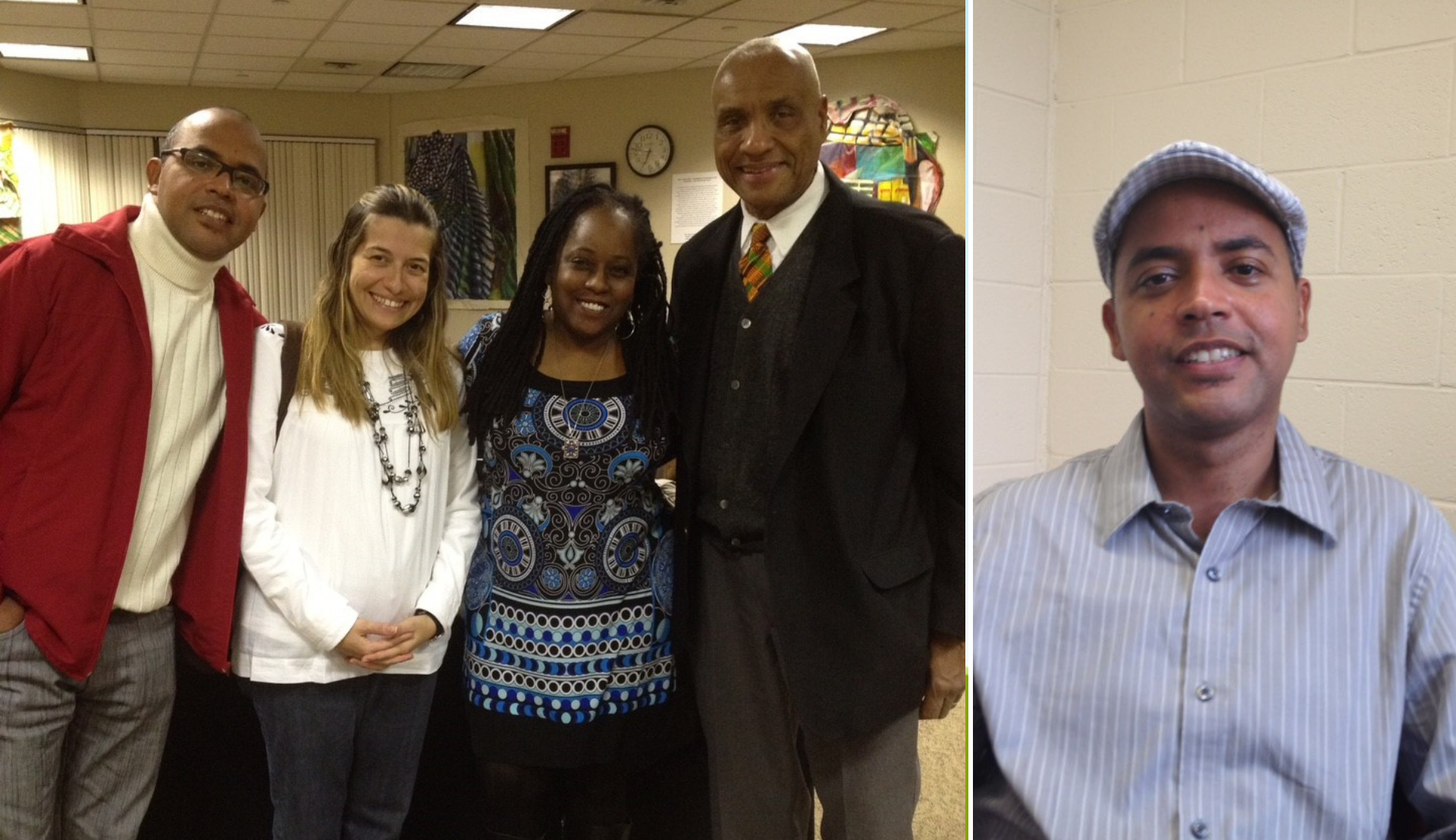A newly published book co-authored by Rutgers Professor Kim D. Butler and Petronio Domingues, an international scholar from Brazil, is the culmination of a prestigious international fellowship hosted by the Department of Africana Studies at Rutgers University. The book, titled, Diasporas Imaginadas: Atlantico Negro e Historias Afro Brasileiras (Imagined Diasporas: The Black Atlantic and Afro-Brazilian Histories), was published in the fall of 2020 and is a project that brings together new African diaspora theory with Afro-Brazilian History.
Dr. Butler, Associate Professor in the Departments of Africana Studies and History, is a specialist in Afro-Brazilian history, and her 1998 publication with Rutgers University Press helped open up a new field of research in Brazilian post-abolition studies. It was this research that led to the decision to base the prestigious national post-doctoral CAPES fellowship in the Africana Studies Department at Rutgers for the first time in 2012. CAPES is a Foundation within the Ministry of Education in Brazil whose purpose is to coordinate efforts to improve the quality of Brazil’s faculty and staff in higher education through grant programs, especially with regard to the training of Doctoral candidates, Pre-doctoral short-term researchers, and Post-doctoral Scholars.
Dr. Domingues who graduated with both Master’s and Doctorate degrees in History from the University of São Paulo (USP), is currently a professor at the Federal University of Sergipe (UFS). He came to Rutgers on the CAPES fellowship in 2012 and developed extensive research on the ways that Afro-Brazilians developed both actual and symbolic relationships with the global African community. He presented his research at the Rutgers Center for Historical Analysis (RCHA) Black Atlantic Seminar in an event that brought together the departments of Africana Studies, History, Latino and Hispanic Caribbean Studies, Spanish and Portuguese and the recently established Critical Caribbean Studies, emphasizing the global reach of the research.
The Department of Africana Studies has always had the global context that is a central part of Rutgers’ mission and identity. In fact, even the name of the discipline, which uses “Africana” rather than “African-American,” strives to encompass the diversity of black experience from Africa to all the countries where its descendants traveled.
Rutgers has particular distinction in the field of African diaspora studies. A relatively new academic field bringing together scholars across many disciplines, its premiere professional organization, the Association for the Study of the Worldwide African Diaspora (ASWAD), was established under the leadership of two Rutgers professors. Dr. Abena Busia (English/WGS) served as ASWAD’s second head and Dr. Butler served as its third President, both shepherding this pioneering international association through its formative years between 2007-2015.
Though Brazil is home to the largest population of African descendants in the world, this field of study had yet to be established in Brazil. As he concluded his fellowship, Dr. Domingues proposed a collaboration with Dr. Butler to bring emerging African diaspora theory to Brazil. In the meantime, this new volume opens yet another avenue of Afro-Brazilian scholarship and is a vibrant example of the global reach of Africana Studies and Rutgers University.
(Photo caption, left) Dr. Petronio Domingues, wife Claudia Domingues, Dr. Kim Butler (Africana Studies/History) and Dr. Leonard Bethel (founding member of Africana Studies, emeritus). The Domingues' discovered they were expecting shortly into his fellowship, and their first son was born in New Jersey during his residency at Rutgers. (At right) Dr. Petronio Domingues.

